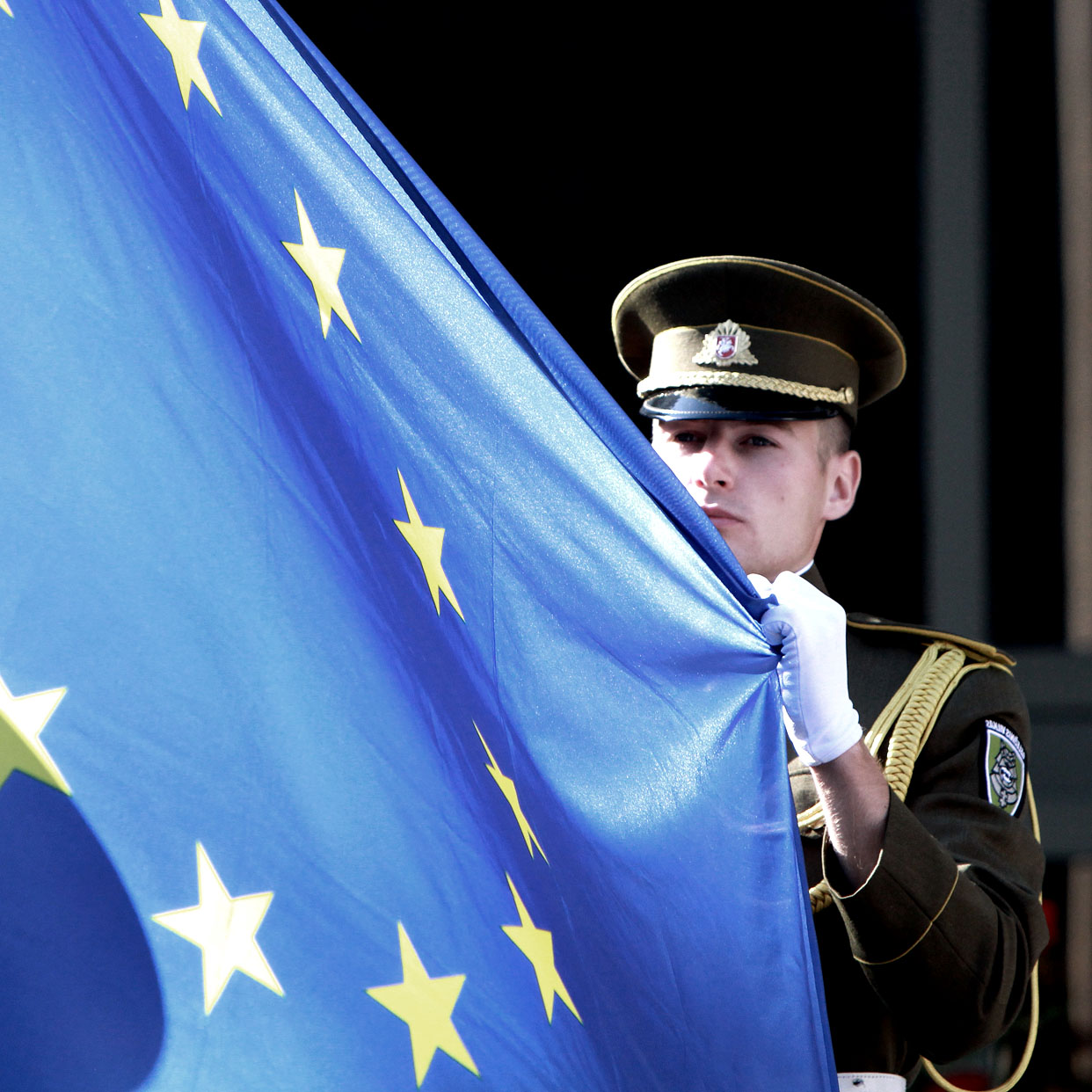European Union edges towards military cooperation
Jean-Claude Juncker calls for countries to pool resources to save billions of euros

A free daily email with the biggest news stories of the day – and the best features from TheWeek.com
You are now subscribed
Your newsletter sign-up was successful
The European Union has taken a major step towards having its own army after the President of the European Commission set out plans to organise a "common military force" across the continent.
Delivering his annual State of the Union address, Jean-Claude Juncker said the EU needed a joint command military headquarters. He argued that the lack of a "permanent structure" results in money being wasted on missions and that countries should pool their resources to save billions of euros.
"From an economic point of view bringing together our military resources could be clearly justified," he said.
The Week
Escape your echo chamber. Get the facts behind the news, plus analysis from multiple perspectives.

Sign up for The Week's Free Newsletters
From our morning news briefing to a weekly Good News Newsletter, get the best of The Week delivered directly to your inbox.
From our morning news briefing to a weekly Good News Newsletter, get the best of The Week delivered directly to your inbox.
Juncker added that any new force would "complement" Nato and would not threaten the EU's transatlantic relations.
The proposals, echoing a plan put forward this week by France and Germany, "are part of a broader attempt to rally EU nations after Britain's vote to leave the bloc and to capitalise on its departure", with London having long opposed the idea of a single European army, says Reuters.
After terror attacks in France, Belgium and Germany, EU leaders have identified security as a major concern among citizens.
However, with Europe's biggest-spending military power set to leave, many in Brussels are concerned that cuts in defence spending will limit the bloc's ability to run peace-keeping missions, disaster relief and counter-terrorism operations at home and abroad.
A free daily email with the biggest news stories of the day – and the best features from TheWeek.com
EU officials have stressed these proposals will not mean all soldiers will wear the same uniform but rather involve increased co-operation that could "revive long-running efforts to reduce reliance on the US" and save member states "up to €100bn a year", reports Reuters.
-
 What to know before filing your own taxes for the first time
What to know before filing your own taxes for the first timethe explainer Tackle this financial milestone with confidence
-
 The biggest box office flops of the 21st century
The biggest box office flops of the 21st centuryin depth Unnecessary remakes and turgid, expensive CGI-fests highlight this list of these most notorious box-office losers
-
 The 10 most infamous abductions in modern history
The 10 most infamous abductions in modern historyin depth The taking of Savannah Guthrie’s mother, Nancy, is the latest in a long string of high-profile kidnappings
-
 Epstein files topple law CEO, roil UK government
Epstein files topple law CEO, roil UK governmentSpeed Read Peter Mandelson, Britain’s former ambassador to the US, is caught up in the scandal
-
 Iran and US prepare to meet after skirmishes
Iran and US prepare to meet after skirmishesSpeed Read The incident comes amid heightened tensions in the Middle East
-
 Grok in the crosshairs as EU launches deepfake porn probe
Grok in the crosshairs as EU launches deepfake porn probeIN THE SPOTLIGHT The European Union has officially begun investigating Elon Musk’s proprietary AI, as regulators zero in on Grok’s porn problem and its impact continent-wide
-
 Israel retrieves final hostage’s body from Gaza
Israel retrieves final hostage’s body from GazaSpeed Read The 24-year-old police officer was killed during the initial Hamas attack
-
 China’s Xi targets top general in growing purge
China’s Xi targets top general in growing purgeSpeed Read Zhang Youxia is being investigated over ‘grave violations’ of the law
-
 Panama and Canada are negotiating over a crucial copper mine
Panama and Canada are negotiating over a crucial copper mineIn the Spotlight Panama is set to make a final decision on the mine this summer
-
 Europe moves troops to Greenland as Trump fixates
Europe moves troops to Greenland as Trump fixatesSpeed Read Foreign ministers of Greenland and Denmark met at the White House yesterday
-
 Why Greenland’s natural resources are nearly impossible to mine
Why Greenland’s natural resources are nearly impossible to mineThe Explainer The country’s natural landscape makes the task extremely difficult